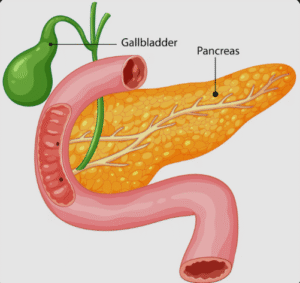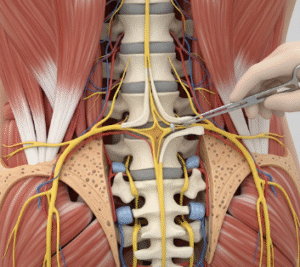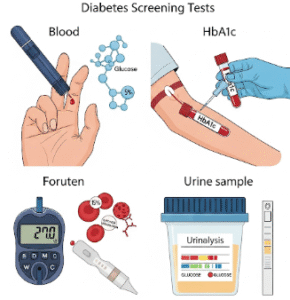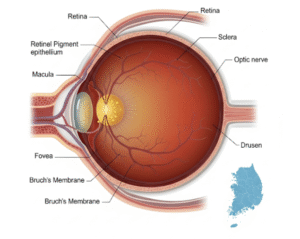Overview
Breast engorgement is a condition in which the breasts become overfull, swollen, firm, and sometimes painful due to excessive milk accumulation, often occurring in the early stages of breastfeeding. It is one of the most common postpartum breast issues and can cause discomfort, tenderness, and difficulties with breastfeeding if not managed promptly.
In Korea, breast engorgement is managed in maternity hospitals, breastfeeding clinics, and specialized postpartum care centers. Korean healthcare emphasizes early recognition, effective relief techniques, and lactation support to ensure both maternal comfort and successful breastfeeding outcomes.
What is Breast Engorgement?
Breast engorgement occurs when the milk production exceeds removal by the infant, causing the breast tissue to become congested with milk. It typically manifests within the first few days to a week after delivery when milk “comes in” or in cases of infrequent feeding or poor latch.
Engorgement can be classified as:
- Mild: Slight swelling and firmness without significant pain
- Moderate: Noticeable swelling, discomfort, and tension in breast tissue
- Severe: Hard, tender breasts with possible warmth, redness, and difficulty feeding
If untreated, engorgement can lead to complications such as blocked ducts, mastitis, or reduced milk flow.
Symptoms
The signs and symptoms of breast engorgement include:
- Swollen, firm, or heavy breasts
- Tenderness or aching
- Shiny or tight skin
- Warmth or mild redness in the affected area
- Flattened nipples, making it difficult for the infant to latch
- Mild fever or fatigue in some cases
- Discomfort during movement or sleep
Engorgement can affect one or both breasts and may fluctuate in severity throughout the day, particularly before feeding sessions.
Causes
Breast engorgement is primarily caused by milk accumulation and vascular congestion, with contributing factors such as:
- Rapid increase in milk production in the first postpartum days
- Infrequent breastfeeding or missed feeds
- Poor latch or ineffective suckling
- Supplementing with formula, reducing milk removal
- Abrupt weaning or delayed milk expression
- Tight clothing or constrictive bras increasing breast congestion
Risk Factors
- First-time mothers, who may have challenges with latching and milk removal
- Delayed initiation of breastfeeding
- Premature or ill infants unable to nurse effectively
- Oversupply of milk leading to rapid breast fullness
- Use of formula supplements reducing breast stimulation
- Poor breastfeeding techniques or lack of lactation support
Complications
If breast engorgement is not managed effectively, it can lead to:
- Pain and discomfort, interfering with daily activities
- Difficulty for the infant to latch, affecting feeding
- Blocked milk ducts
- Mastitis, a bacterial infection causing fever, redness, and increased pain
- Decreased milk supply due to ineffective milk removal
- Nipple trauma from hard, swollen breasts
Prevention
Prevention strategies aim to ensure regular milk removal and proper breastfeeding techniques:
- Frequent breastfeeding, ideally every 2–3 hours
- Correct infant latch to promote effective milk extraction
- Gradual weaning rather than abrupt cessation of feeding
- Breast massage and hand expression before feeds to relieve pressure
- Avoid tight clothing or restrictive bras
- Hydration and balanced diet to support lactation
- Lactation education and counseling for new mothers
Treatment Options in Korea
Self-Care Measures
Mild to moderate engorgement can often be managed with home-based techniques:
- Frequent breastfeeding or pumping to remove milk
- Warm compresses before feeding to stimulate milk flow
- Cold compresses after feeding to reduce swelling and pain
- Gentle breast massage toward the nipple to relieve congestion
- Hand expression to soften breasts and flatten nipples for easier latch
Medical Management
In severe or persistent cases, medical intervention may be necessary:
- Professional lactation support to improve latch and milk removal
- Pain management: Mild analgesics such as acetaminophen or ibuprofen
- Antibiotics if secondary infection or mastitis develops
- Ultrasound assessment in complicated cases to rule out abscesses
Supportive Care
- Lactation counseling to educate mothers on feeding techniques and milk expression
- Follow-up monitoring to ensure resolution of engorgement
- Psychological support to reduce stress, which can affect milk letdown
- Breastfeeding clinics in Korea provide guidance on positioning, pumping schedules, and preventing recurrence
Prognosis
The prognosis for breast engorgement is excellent with timely management:
- Most cases resolve within a few days with proper feeding and self-care
- Complications like mastitis are rare if early measures are taken
- Breastfeeding can continue successfully, ensuring adequate infant nutrition
- Korean hospitals and postpartum care centers offer multidisciplinary support, combining lactation experts, pain management, and follow-up care
- Education and preventive strategies significantly reduce recurrence and promote maternal comfort
With state-of-the-art lactation support, professional guidance, and evidence-based interventions, Korea provides effective, safe, and personalized management of breast engorgement, ensuring both maternal well-being and optimal breastfeeding outcomes.













